Seven things we’d like to see on the 2018 Tour de France route
A wishlist for the 2018 Tour de France – if ASO is reading, it's still not too late to change it before the official route is unveiled on Tuesday
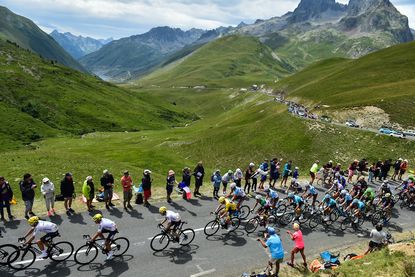

The world's press and a smattering of the world's best professional cyclists will descend on the Palais des Congrès in Paris on Tuesday (October 17) to be officially wowed by details of the 2018 Tour de France route.
Each year, Tour organiser ASO keeps details of the whole route closely under wraps until its official announcement is made. That doesn't stop the rumours, speculation and informed guesswork from piecing together what may or may not be the route of cycling's biggest race.
We already know that the Grand Départ will be hosted by the Vendée region, kicking off in Noirmoutier-en-l’Île on Saturday, July 7. But beyond the start town of stage four (La Baule), nothing has been confirmed.
Here we provide a wishlist of the things we'd like to see in the 2018 Tour, however fanciful they may be.
>>> Tour de France 2018 route: What we know so far
A mid-race individual time trial, not at the end
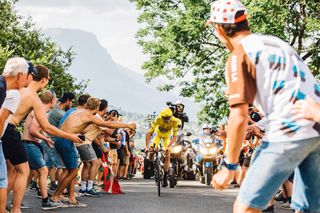
We like a bit of time trial action, but it doesn't seem entirely right that a test against the clock should be so over-rulingly decisive for the whole race. In 2017, the penultimate stage was a 22.5km time trial around Marseille, which saw Chris Froome conclusively stamp his authority on the race and take his fourth overall win.
By the half-way point in this particular TT is was obvious that Froome was going to snuff out any chance of being overthrown. Compare this to the penultimate stage of the 2017 Vuelta a España – another ASO race – which finished atop Alto de L'Angliru. That provided a spectacular and fitting conclusion to the GC battle, and was not a foregone conclusion.
Get The Leadout Newsletter
The latest race content, interviews, features, reviews and expert buying guides, direct to your inbox!
Some route rumours suggest that there will be another penultimate stage time trial, others say a mountain time trial on Alpe d'Huez. Or perhaps both. The Tour should reward the complete all-round rider, so balance is key – not too many time trial kilometres where minutes can be lost or gained.
Position major summit finish stages before the rest days
History suggests that the best mountain battles are fought directly before rest days (and we're including the final stage into Paris as a rest day). Riders seem more prepared to attack and give it everything safe in the knowledge that they can recoup some energy the following day, rather than face the same thing all over again. And again.
That's not to say we are against back-to-back mountain stages, that is all part and parcel of Grand Tour racing that contributes to the war of attrition of three-week races. But the relentless menu of summit finishes can create cautious racing among the GC favourites, who often finish together in a group not willing to attack and waste energy, giving something away to their rivals.
This is particularly the case in 2018, now that Alberto Contador has retired. The Spaniard could be relied upon to launch an attack and he won't be there to liven things up when others are warily looking at each other.
Let's have an exciting opening week
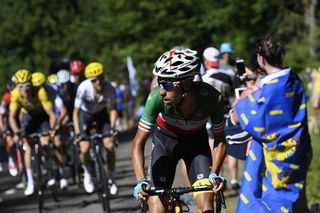
The trouble with the Tour's opening week is that it is incredibly hard to live up to the weight of expectation lumped up on it. The 2017 Tour served up a decent enough first week providing a mixture of flat stages, hilly stages and an early test for the climbers to La Planche des Belles Filles on stage five.
Although the 2018 race starts in a relatively flat region in the country's north-west, it would be great if the route speculation is true and we could have a finish on the Mûr-de-Bretagne among a mixture of stages that already include flat days and a team time trial.
The Mûr-de-Bretagne is no vast mountain, by any means, but gradients touching 12 per cent over its two kilometres provide enough of a challenge to let the GC contenders have a dig. Or at the least, provide an opportunity for the yellow jersey to change hands.
Cobbles, please
Tour stages incorporating cobbled sectors have been some of the most entertaining in recent memory. Obviously favouring classics riders, cobbled sectors can put skinny climbers into serious difficulty and a badly-timed mechanical or crash can see significant time losses.
There is a strong suggestion that the 2018 Tour will visit Roubaix at the end of the opening week, although other rumours have suggested that the cobbles will be limited to around three kilometres – which seems a wasted opportunity.
It was the cobbled stage in the 2014 Tour that saw Chris Froome withdraw from the race – as it turned out, the only Tour he hasn't won since 2013. Although Froome crashed before the cobbled sectors commenced on a shockingly wet day, the fact that he knew they were coming would have been a factor in his withdrawal.
Although no one wants to see a big GC contender leave the race due to a silly crash... but there's no denying that cobbled stages provide drama.
Watch: Best of the 2017 Tour de France
More in the Pyrenees
The 2017 Tour only really glanced at the Pyrenees, a tantalisingly brief visit before moving east to the Alps. This year, those in the know say that the Pyrenees will play a bigger part in the 2018 race and feature heavily in the final week.
There's also the factor that French president Emmanuel Macron has a family connection with the region, which could entice ASO to do the area justice.
Mont Ventoux return
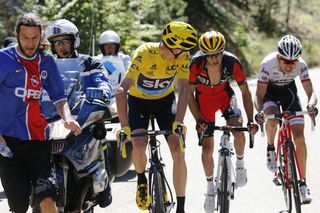
Some fans think that Mont Ventoux - the Giant of Provence - adds little to the Tour de France, despite its long association with the race. Others wish it was in the Tour every year as a permanent feature.
The fact that Ventoux is so esteemed within the cycling world means that every rider would love to have a Tour victory on Ventoux, and therefore you can expect aggressive riding.
If Ventoux is included, we hope that there's no repeat of the farce in 2016 which saw the ascent shortened due to extreme winds at the moonscaped summit.
This compressed the many thousands of fans into the lower slopes, leading to a TV motorbike to crash, Richie Porte to crash into it, then Chris Froome to crash into Porte and then desperately run up the mountain in his cleats to prevent loss of time as he awaited a replacement bike.
Actually, that was quiet entertaining, but it's doubtful Froome would want to repeat it.
Well-behaved fans
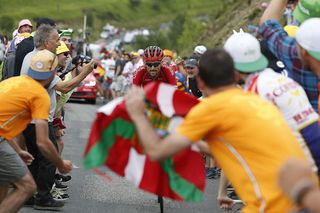
This wish isn't specifically about the route itself, but is an increasingly important part of the race. There has been a trend in recent years for fans to get increasingly closer to riders during Grand Tours, to the point of interfering with the outcome of the race.
Thousands of over-eager spectators spilling onto narrow, steep roads in the Alps and Pyrenees has created a headache. Cycling is one of the most accessible sports in the world, and no-one wants to see endless barriers or restrictions on when and where fans can watch the racing. And we've not even mentioned the vocal abuse levelled at some riders.
So let's keep the running next to riders, letting off flares, rider abuse and cups of urine to a minimum this year, please.

Thank you for reading 20 articles this month* Join now for unlimited access
Enjoy your first month for just £1 / $1 / €1
*Read 5 free articles per month without a subscription

Join now for unlimited access
Try first month for just £1 / $1 / €1

Nigel Wynn worked as associate editor on CyclingWeekly.com, he worked almost single-handedly on the Cycling Weekly website in its early days. His passion for cycling, his writing and his creativity, as well as his hard work and dedication, were the original driving force behind the website’s success. Without him, CyclingWeekly.com would certainly not exist on the size and scale that it enjoys today. Nigel sadly passed away, following a brave battle with a cancer-related illness, in 2018. He was a highly valued colleague, and more importantly, an exceptional person to work with - his presence is sorely missed.
-
 Great Britain qualifies full track cycling squad for Paris Olympics
Great Britain qualifies full track cycling squad for Paris OlympicsTeam GB will now select up to 16 riders to compete across the sprint and endurance events
By Tom Davidson Published
-
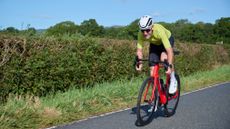 7 steps you must not forget when preparing your bike for spring - by a mechanic
7 steps you must not forget when preparing your bike for spring - by a mechanicMechanic to pros and amateurs alike, Glen Whittington shares his tips for the successful de-hibernation of your bike
By Glen Whittington Published